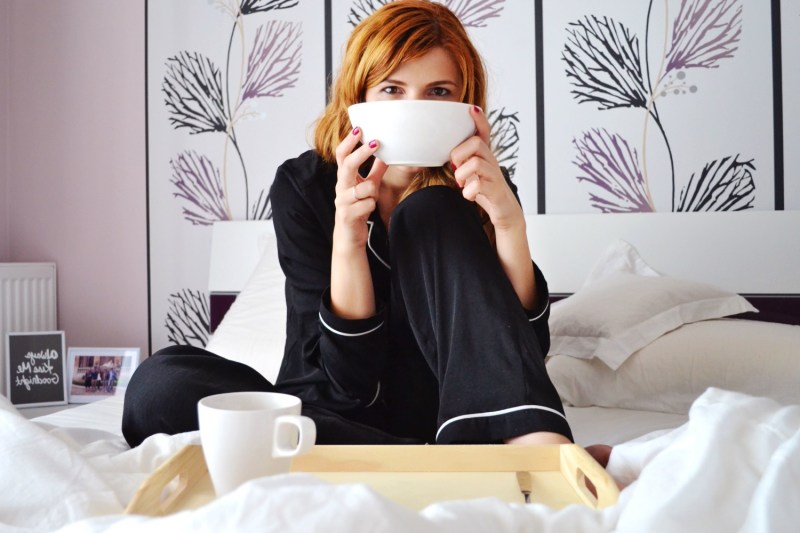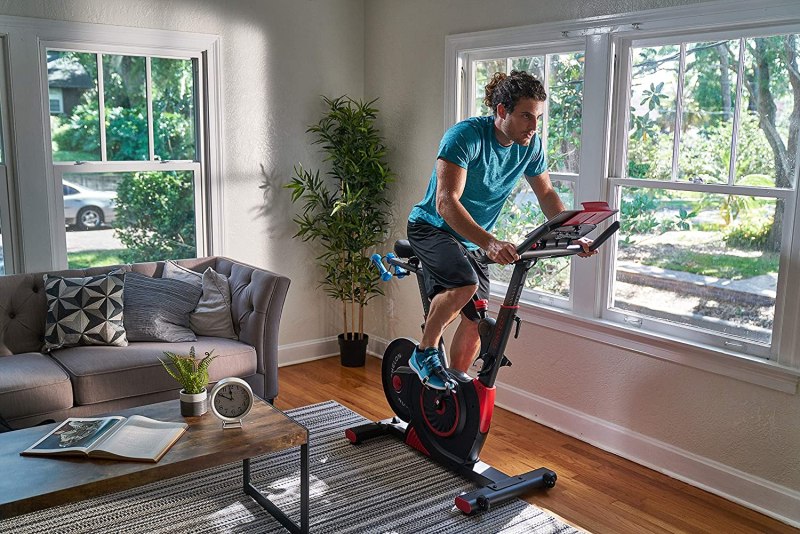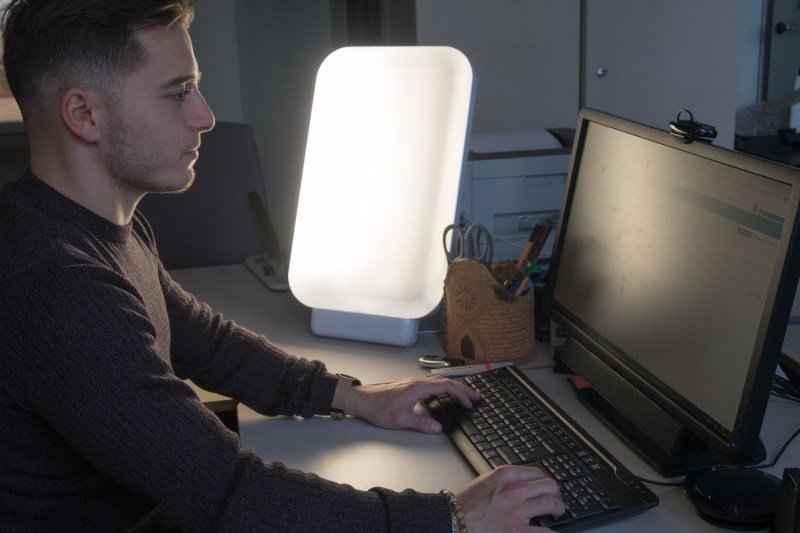By now, you’re well aware of the importance of sleep. It sits high atop a physiological throne, commanding just about everything. If you don’t get enough of it, there’s a serious trickle-down effect. Suddenly, you’re not thinking straight, you’re lacking energy, and your biological clock is off — you’re not you. And that’s not fair to your health and the health of those around you.
Alarmingly, the CDC estimates that one out of three adults is lacking significantly in the sleep department. Worse, that figure was dropped before the pandemic, back in 2016. Surely, that percentage has only risen. We’ve found creative ways to cope with the new normal, but what we really need are lasting patterns that will ensure a good night’s sleep. Try some or all of the suggestions below as you pursue your worthy quest of catching more z’s.
Upgrade Your Mattress

You know the drill — you spend a third of your life in bed. So why not make it comfortable? Upgrading your mattress can make waves when it comes to upping your sleep hours. Test the thing out before you buy it and take into account contextual elements (are you a side-sleeper?) to make the right decision. The average mattress lasts seven to ten years, but that figure is quite general. If it’s not giving you the support and comfort you need, it doesn’t matter how old the thing is, it simply needs to go. While you’re at it, make sure you have some quality pillows and a good, heavy comforter, too. The details add up.
Form a Routine

You may be a fully grown person, but a lot of the qualities that apply to kiddos winding down at night apply to you, too. Your body needs signs that it’s time for sleep, above and beyond the fact that it’s dark outside. (We’re practically evolving past that anyway by constantly surrounding ourselves with screens and other artificial light.) The routine can be simple: Follow through with it so your body gets used to it and associates it with sleep.
For example, position a bath or shower at a certain time every night before bed. You can also schedule a consistent time when you read or engage in a therapeutic hobby like yoga, or simply going for an evening walk. Make whatever that task is — whether it’s working on an adult lego set, drawing in a sketchbook, or journaling — a consistent, long-term fixture in your evening routine.
Have a Wind-Down Beverage

Tea can help you sleep, and there are many tried-and-true and caffeine-free options created for the sole purpose of improved sleep. While overdoing it in the alcohol department is the wrong direction to go, a minimal amount of imbibing can be helpful. Try a nightcap before you retire, or even something as simple as warm milk or broth. Just don’t overdo it with any liquid, or else you’ll be in the bathroom instead of in your bed. If you’re full — which is better than the opposite, nobody should be going to bed hungry — try a sip of a digestif like Grappa or amaro. There are zero-proof versions of these, too, if that’s preferred.
Try CBD

The jury is still mostly out when it comes to the effectiveness of CBD, but signs seem to point to the stuff being helpful. There are more options than ever to test it out, from tinctures and CBD gummies to ciders and snacks. For many, it offers a calming effect without the heady drifting THC tends to inspire. If you’re sensitive to new substances, try a very low dose to begin with, then micro-dose your way up until you get the desired state. If CBD isn’t for you, go the supplement route and try something like melatonin.
Limit Screen Time

We are on our devices all the time, and that’s not great for circadian rhythms. Maintain your bedroom as a fortress of peaceful solitude; that is, kick out your phone or TV, or significantly limit the amounts while in that domain. It’s all too tempting to scroll through your phone while lying in bed, but sleep experts tend to discourage such a thing. Set a limit, and prepare to banish the devices out of sight and mind if necessary, at least during the lead-up to bedtime. A great alternative as you enter the evening is to simply go outside. Throw a headlamp on and go for a stroll in the woods near your place. Even 10 minutes on your stoop to breathe the crisp night air and gaze at the stars may be enough.
Exercise

There’s no denying it; you sleep better and harder when you’re physically taxed. Exercise can pave the way, whether you’re a gym rat or just throwing together a workout at home. Be flexible here, as exercise can come in all shapes and sizes. Cardiovascular exercises like jogging, biking, swimming, and more are particularly good at tiring the body out. Just remember to stay hydrated and know that for some, working out just before bed can leave you amped and energized. If that’s the case for you, get your exercise in earlier in the day.
Consider Light Therapy

Light therapy can be a valid option, especially for those thrown off by so much time in front of artificial light – looking at you, work-from-home laptop junkies — or in northern zones where it’s perpetually gray in fall and winter. Your body needs cyclical light, even if it’s synthetic. Light therapy provides that and there are a range of tutorials online available, including demonstrations of specific lamps that can aid in the winter blues. Also, keep in mind that vitamin D is directly associated with light exposure and energy levels, so you may want to try a supplement or add a new vitamin-charged meal or drink to your daily diet.
Relax

This may sound absurd to some, but it’s actually important to focus on relaxing. One of the best pieces of advice is borrowed from a military exercise that apparently encourages troops to sleep better. It’s a simple but often-overlooked thing: Don’t lock your jaw. If you’re often stressed, anxious, or nervous, there’s a good chance you’re clenching your jaw as you close your eyes for the evening. Be cognizant of it, and release. It’s a small action that can have profound results.
While we’re on the topic of relaxation, find a respiratory rhythm. You can breathe in time to some atmospheric music, or simply set a tempo yourself — five seconds in, four seconds out, that sort of thing. Go with deep and steady breaths. If the sound of your own breathing bothers you, set up some white noise.
Editors' Recommendations
- Do you have winter blues? Try these 12 tips to get a serotonin boost
- Why You Should Clean Your Mattress and 9 Simple Steps to Complete the Task
- Here Are Some Tips for Better Sleep While Traveling
- This is How Much Sleep You Need and Tips to Maintain It




